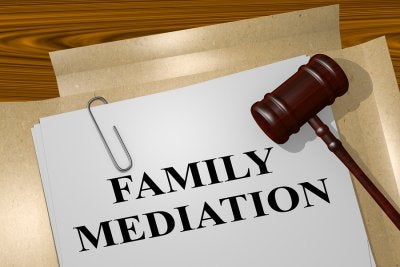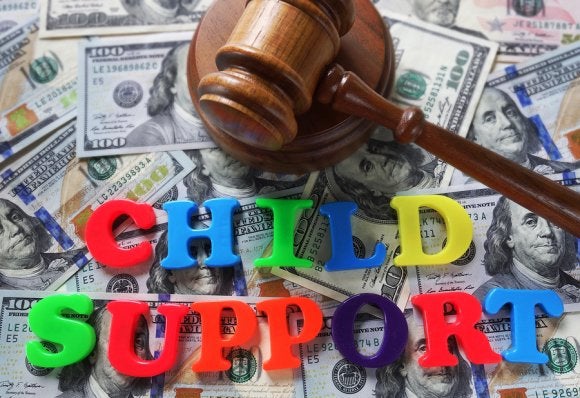-
The Benefits of Mediation in Child Custody Disputes
During a divorce, child custody is a particularly contentious issue. Clashes over custody can do lasting damage to the relationships between parents and children, especially when coming to an agreement involves nasty courtroom battles. Mediation offers an alternative that can be easier on families. Talk to a mediation lawyer in Baltimore if you are facing a child custody dispute to see if you could come to an agreement outside of the courtroom that works for your family. Here are some of the benefits to choosing mediation in your custody dispute.

Less Stress for Parents
Mediation is not adversarial, as disputes decided in the courtroom can be. The goal of mediation is for all parties to work together to come up with a solution that is right for everyone. There are no winner or losers in mediation, so the overall process is less overwhelming. A third-party representative will guide the mediation process and ensure that no one’s rights are violated, so you can focus on making an agreement instead of being on guard.
Less Stress for Kids
When parents are locked in a custody dispute, their animosity almost inevitably encroaches on their children’s well-being, even despite the best intentions. Kids may feel pressured to choose sides or may hear one parent talking disparagingly about the other parent, causing confusion and fear. Because mediation is easier on parents, it is also easier on kids. They may also get an outcome that is better for them, since the focus of everyone in mediation is to make a plan that is right for the children.
Improved Long-Term Cooperation
Mediation helps to set the tone for what the new normal will look like after a divorce. When parents cooperate during mediation and come up with a child custody plan they both feel good about, they walk away feeling encouraged about their abilities to co-parent even after divorce. This kind of cooperation sets the stage for future issues to be negotiated collaboratively rather than in an adversarial manner.
-
Solving Marital Asset Disputes in Mediation
During a divorce, a couple’s assets must be divided to the satisfaction of both parties. These assets may include money, property, vehicles, and personal items. When partners disagree on the division of property and assets, it is the role of a mediation lawyer to step in and assist the couple to ensure that the divorce process can proceed. During divorce mediation in Baltimore , you and your spouse will meet with an agreed-upon mediation attorney to reach an agreement concerning your assets without the influence or mandates of a judge.

The Mediation Process
When you meet to solve a dispute over marital assets via mediation, you and your spouse will typically meet with your mediation attorney without the company of your divorce lawyers. Instead, the mediation attorney will provide any advice or family law information you may need during the mediation process. Once you have both signed a mediation agreement, you will discuss your concerns with the mediator, who will attempt to guide you and your spouse to a resolution regarding the way in which assets will be divided following your divorce. You may need several sessions with the mediation attorney to reach a satisfactory agreement. Once this agreement has been reached, your mediator will draw up a settlement agreement, which you and your divorce lawyer may review before signing.
The Benefits of Mediation to Divide Assets
There are several benefits associated with seeking mediation services if you and your spouse are having difficulties dividing assets during a divorce . The mediation process is confidential and informal, allowing you to reach an agreement without the oversight of a judge or in the setting of a formal courtroom. Additionally, the divorce mediation process is often faster and more cost-effective than an in-court settlement mandated by a judge. This process gives you and your spouse the opportunity to work out the division of your assets in a way that is acceptable to you both, rather than being forced to follow the decree of a judge.
-
Tips for Making Provisions for Guardianship and Custody in Your Will
Drafting a will ensures that you are able to clearly state your wishes regarding issues such as asset inheritance and child custody or guardianship following your death. Whether you are creating a will for the first time or updating a previous document, it’s important to consider several factors when making provisions for guardianship in your last will and testament in Baltimore. Working with an experienced lawyer can help you ensure that the provisions you make are appropriate and beneficial for your children in the event of your death.

Tips for Naming Guardians
During the creation of your will, you should name one primary and one secondary guardian for each of your children currently under the age of 18. The purpose of naming a secondary guardian is to ensure your child is cared for in the event that your primary choice does not wish to or cannot fulfill the obligations of guardianship. It is typically best to name only one primary guardian, as naming two individuals could lead to conflict over custody in the future; however, naming both members of a stable couple or marriage is acceptable if you want both parties to have legal control over your child’s future.
Tips for Handling Finances
In addition to naming a guardian to retain custody of your children in your will, it’s also important to consider how you will provide financial support for your children in the event of your death. You may wish to appoint a separate individual to control the financial aspects of your child’s estate if you feel that the individual to whom you have granted guardianship may not be the best person to handle your child’s financial future. Alternatively, you can opt to set up a financial trust for your children, which is designed to meet their ongoing financial needs; when creating a trust, you will need to name a trustee in charge of handling these assets.
-
Understanding Advanced Directives
Wills are legally binding documents that state your wishes regarding issues such as the division or inheritance of your personal assets and the custodianship of your children. Like wills and trusts, an advanced directive is a legal document designed for use in the future. This document can be created at any time with the help of your attorney in Baltimore .
An advanced directive gives instructions regarding important healthcare decisions. This document is used in the event that you cannot speak or communicate for yourself, whether due to age, disease, or an accident. An advanced directive may be used to give healthcare power of attorney to an individual of your choosing, or may override your family’s wishes if they conflict with yours. This short video provides more information about advanced directives and their function.
-
What Issues May Require Post-Divorce Modifications?
Not all matters resolved by a court order may be modifiable. However, if your circumstances have changed and you believe a post-divorce modification is called for, it’s best to contact an attorney in Baltimore as soon as possible. Your lawyer could help you seek a change in child support, for example. If you’re receiving child support payments, you may need to ask for an increase in payments if your child develops a serious illness or otherwise requires significant care. If you’re paying child support, mediation may be called for to lower the payments if you’re dealing with job loss or other substantial changes in circumstance.
Mediation for post-divorce modification could also address needed changes in alimony, or spousal support. If the Court awarded you alimony or ordered you to pay alimony, your alimony is subject to modification. If you entered into a written agreement for alimony, which was non-modifiable, you may still be able to modify your alimony if the other party is willing to agree. For example, if a payor has lost a job, the receiving spouse may agree to temporary reduction in exchange that the alimony will be paid later. The reason he or she may do this is to avoid the unnecessary emotional and financial costs of litigation.
Talk to an attorney about mediation services if you have reason to believe that the child custody arrangement ought to be modified. For instance, if you are currently the non-custodial parent, you might request custody of the child if the other parent is engaging in substance abuse, has been arrested, or has been neglecting the child. You may also wish to revisit the parenting plan and custodial arrangements due to the age of the child, the distance between the parents’ residences, and the need of co-parenting for help related to the extra-curricular activities of the child.


